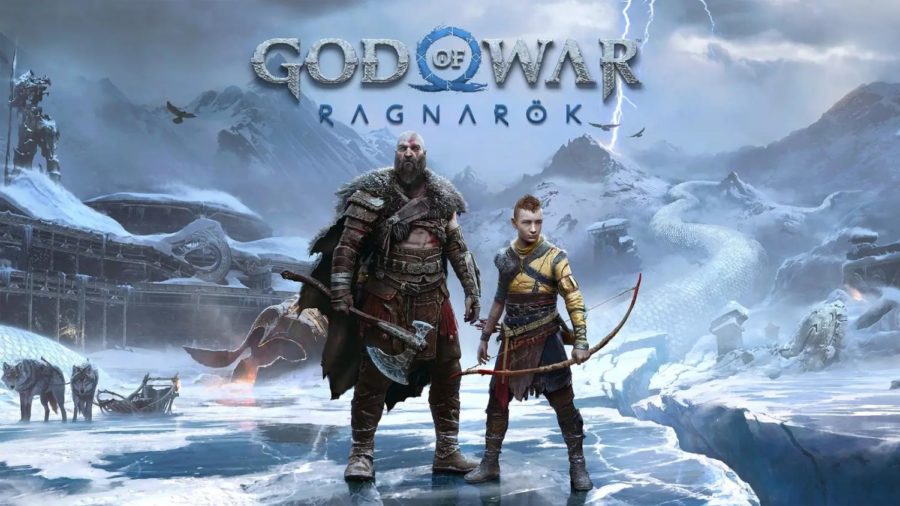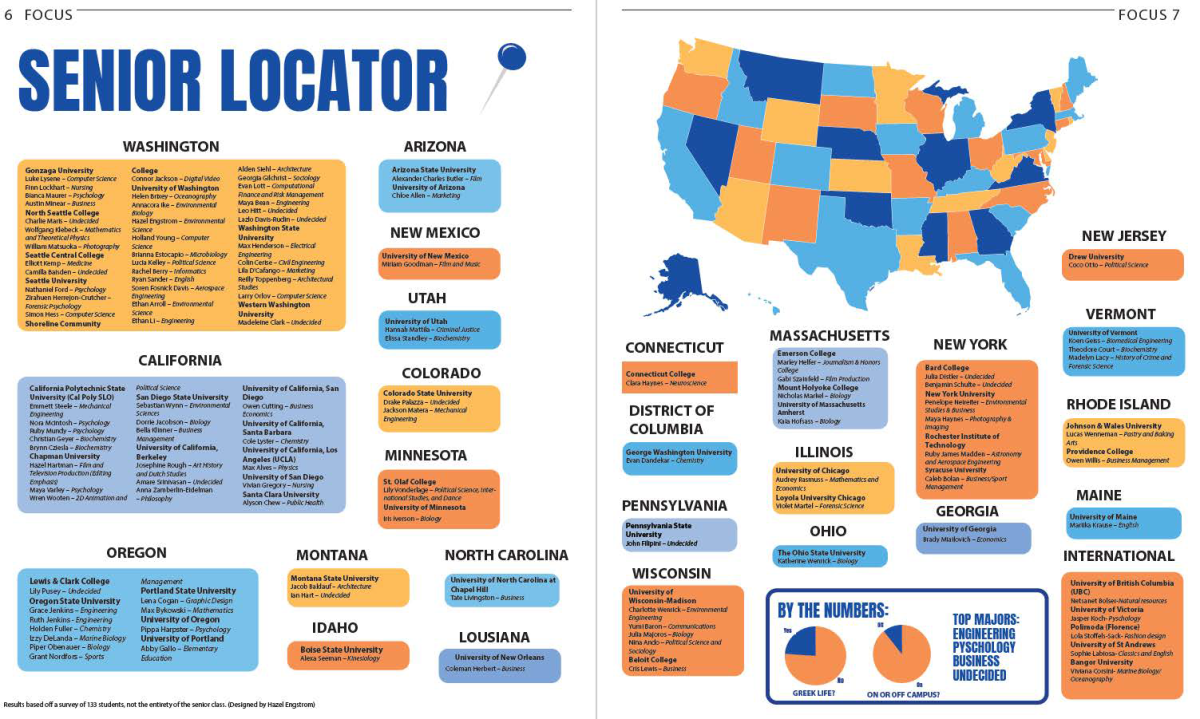‘God of War: Ragnarök’: An awkward teenager of a masterpiece
Award winning game depicts the growing pains of a god
“God of War: Ragnorak” creates a successful sequel to its beloved parent game, however the complexity added to the plot can create confusion for the player.
December 15, 2022
In 2018, Santa Monica Studios rebooted their flagship series. After years of intense work and worry, “God of War” was released to critical acclaim and was awarded Game of The Year. The game explores themes of family, growth and forgiveness all under the lens of Norse mythology. While the sequel, “God of War: Ragnarök” had amazing reviews at its launch, it struggles to live up to the monumental legacy set by the first game.
The two protagonists of both games are Kratos, and his son Atreus. Kratos was born in Greece as a Spartan warrior eventually becoming the God of War and killing the rest of the Greek pantheon for wronging him. After he demolishes Greece, he leaves for Scandinavia and makes a new family, this is where the second protagonist is revealed, Atreus. Atreus is the son of Kratos, and is also eventually revealed to be the Norse God, Loki.
The most obvious improvement from the first game is the combat, not only do you get another weapon, but the combat has been reworked allowing for new moves and strategies.
The biggest complaint for the first game was the lack of enemy variety. Throughout the first game you fight many trolls, almost half of all bosses you are forced to fight are trolls. The most disappointing moment was travelling to Helheim, realm of the dead, and then just fighting another troll.
The second game made sure to fix this, having such varied enemies that by the time you start understanding one enemy, they make sure to send another just to mess you up. But while the gameplay is an improvement, it matters little compared to the main reason people loved the first game: the story.
The first game is based around a story of a father-son duo travelling to the highest peak in all the realms to spread their mothers ashes. Its simplicity is what allows for such a compelling story. Throughout the adventure they each teach each other and grow, the father teaches the son how to be a god and the son teaches the father how to be a human.
The second game takes place three years after the first, as the characters have been surviving Fimbulwinter, the three years of winter that precedes Ragnarök. Ragnarök is a cataclysmic event that is described in Norse mythology, it leads to the death of many people and gods, and leads to the destruction of the world.
The second game has a much more complicated story. While the first one is all about climbing a mountain, in the second, you never know what’s going to happen. You travel all across the nine realms of Norse mythology, searching for gods, items and prophecies, all while the characters argue on whether to prevent Ragnarök or not.
In the first game, Kratos was the main character, merely travelling with his son Atreus. But in the sequel, Atreus, acts as a foil to Kratos, not just as a side character but as a playable character all on his own. Although the game begins with them as a duo like the first game, they slowly start butting heads and eventually split off. You get to play as both characters, and thus you are stuck in an awkward tug of war where Kratos wants to just mind his own business and keep his son safe, while Atreus wants to discover his destiny and prevent Ragnarök.
While this is interesting, it definitely strains the game. There is such a tonal whiplash and awkwardness during the first half, causing a reluctance to play each character. Kratos shows no enthusiasm for the adventure and does not interact with the world in meaningful ways. While playing his sections, I kept thinking ‘can something important happen?’ Atreus is such an entitled brat that although interesting things are happening, I kept hoping he would grow up, even though he has good ideas he never communicates it.
There is a whole scene where instead of calmly discussing with his father which could lead to a healthy and reasonable outcome, he just runs away. This was much of my opinion throughout a lot of the game, but at a certain point where Atreus makes a decision, things finally got better, and then I realised the purpose of the game.
“God of War” is like a child; grabbing you by the hand and showing you what it wants, while Ragnarök is like a teenager. It starts off as an awkward mess that doesn’t know what it wants, but then it starts discovering itself, exploring the world and making important decisions.
If “God of War” is a game that starts off amazing and ends slightly better, then “God of War: Ragnarök” starts off great and gets exponentially better, succeeding even its parent game.

























